Photo by Richard Howard
Joanne Murray ’81 and Joe Joyce get a little choked up when they talk about the Madeleine Korbel Albright ’59 Institute for Global Affairs and its network of alumnae around the world.
In 2010, the two of them—as founding director and faculty director respectively—launched the Wintersession program with 40 students representing many different majors and countries. The teachers for the innovative, interdisciplinary curriculum were the former secretary of state herself, Wellesley faculty, and alumnae practitioners and experts in the field of international relations and public policy. Students were organized into interdisciplinary teams to investigate topics such as the UN’s millennial development goals, and then followed their January experiences with summer internships in global affairs. The vision was large: to prepare women for global leadership and to initiate meaningful change in the world.
Since the get-go, the program has been wildly successful: The 40 Albright Fellow slots available each January are some of the most competitive and coveted opportunities open to students. Albright has returned each year to teach and give talks to the College community, and lecturers in the program have included heads of NGOs, ambassadors, businesspeople, admirals, and many more.
This February, seven years in, Murray and Joyce called all the fellows— alumnae and current students—back together for a reunion and symposium. They also invited some heavy hitters to speak on the weekend’s theme: global inequity. In addition to Albright, these included Christine Lagarde, managing director of the International Monetary Fund; Sri Mulyani Indrawati, managing director and COO of the World Bank; Mark Malloch-Brown, former deputy secretary general of the UN (all above, center); and others.
But it was the fellows themselves who made Murray and Joyce teary. They came back in droves, from as far as China and India; 72 percent of the seven cohorts, an extraordinary number. A group of them gave polished and professional “Maddy Talks,” modeled after TED Talks, about their post-graduate lives.
Joyce was thrilled at the strong bonds the fellows have. “The experience of being an Albright fellow did not end the day they graduated from Wellesley,” he says. “They really do come away with a larger vision of what they can accomplish, both individually and collectively.”
Murray says that seeing more than 200 fellows happily engaging with each other filled her with hope. “It was enormously gratifying to see what these individual women are able to do, are choosing to do—the amount of courage and talent that they have, and their sense of joy and connection that they had to each other,” she says. “These women are really doing good work in the world.”
Going forward, the institute will be formalizing career- and field-based mentoring for the fellows. “Our next step,” Murray says, “is to enlarge their paths forward in the world. It’s not enough for them to have a network that advances each other’s careers, [although that is] true. … How can this group, this cohort of women, create a more stable, peaceful society? Part of that is through advancing and promoting their leadership, and part of that is through always extending your hand to open more opportunity for other women.”
Albright, who calls her work with the institute “engrossing and rewarding,” also sees a big future for the fellows. “I am thrilled by what [the Institute] has become, and even more excited about what it will accomplish in the future,” she told the assembled fellows. “Because I have every expectation that one day, a future president or secretary of state will proudly recall her time as an Albright Fellow.”
The fellows laughed, duly noted the secretary’s prediction, and no doubt took it to heart.




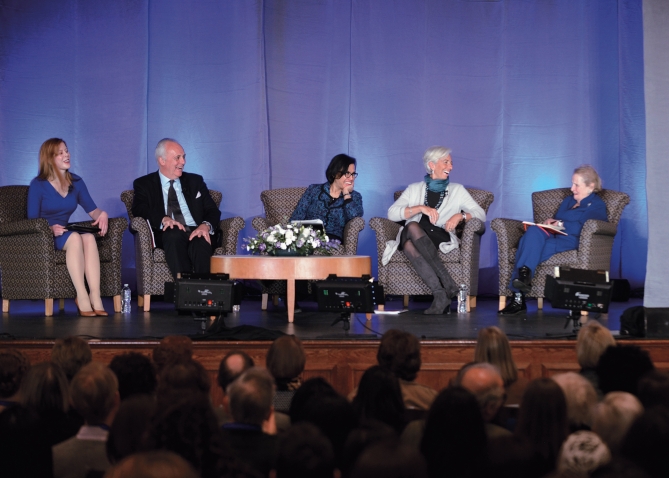
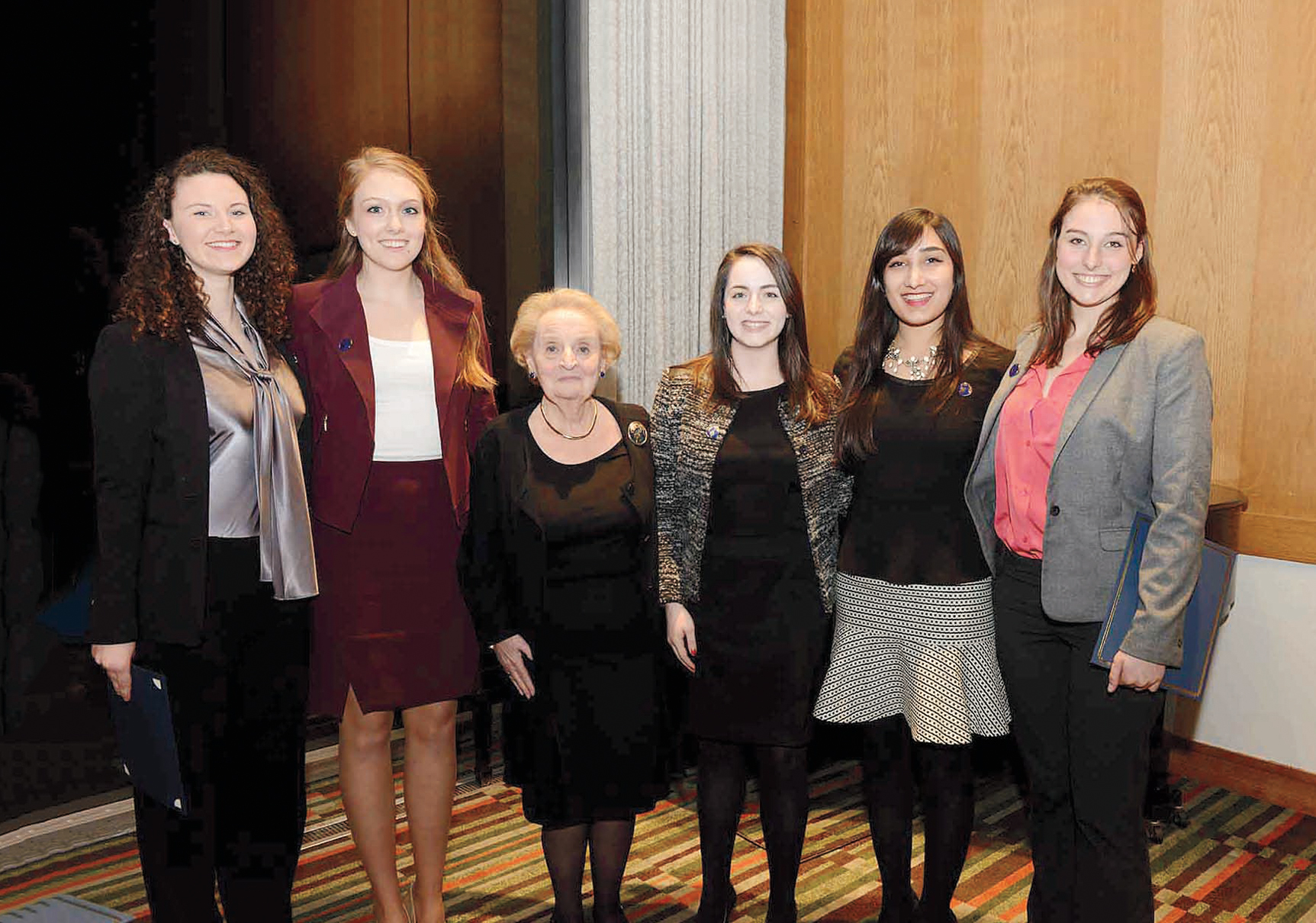
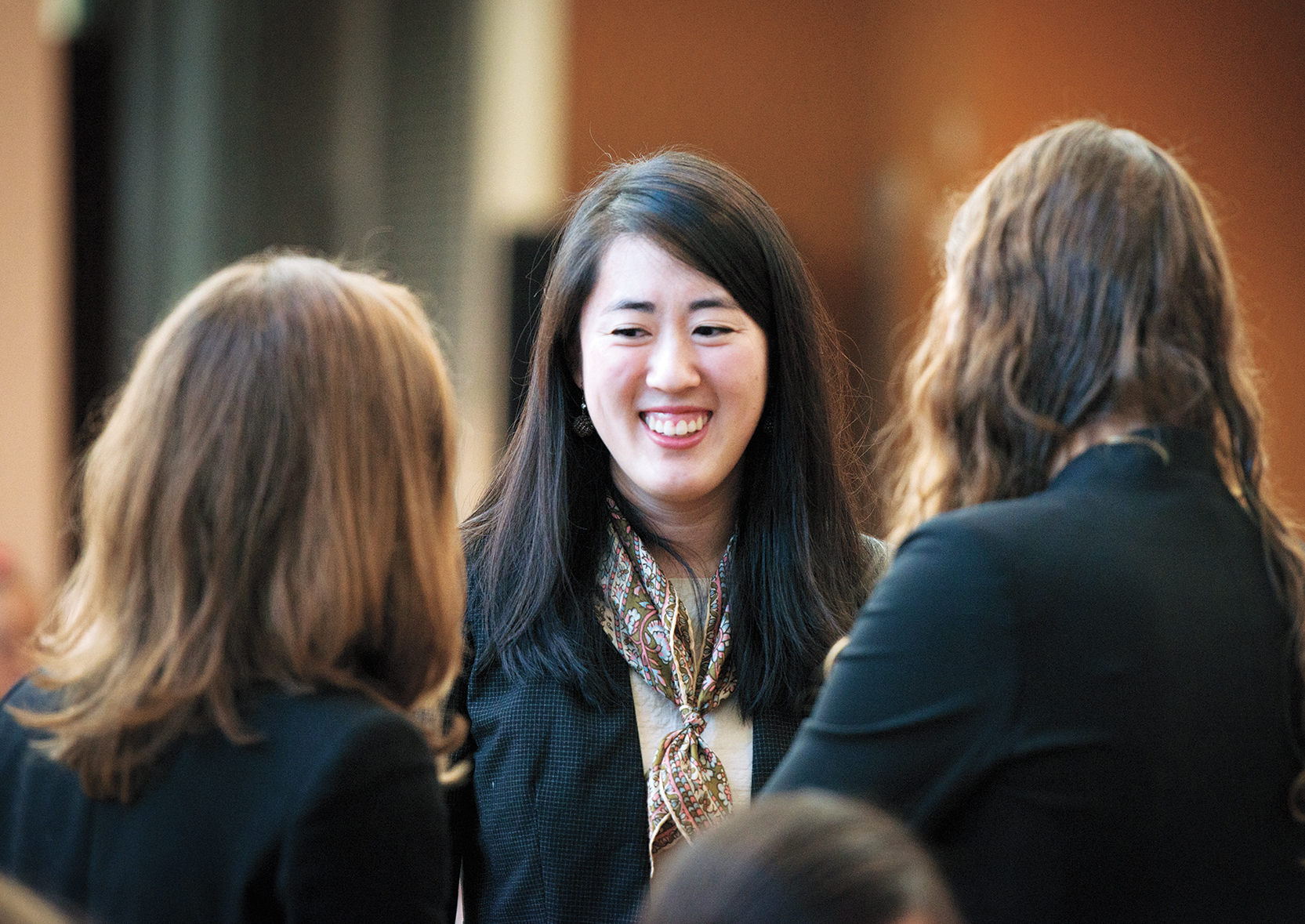
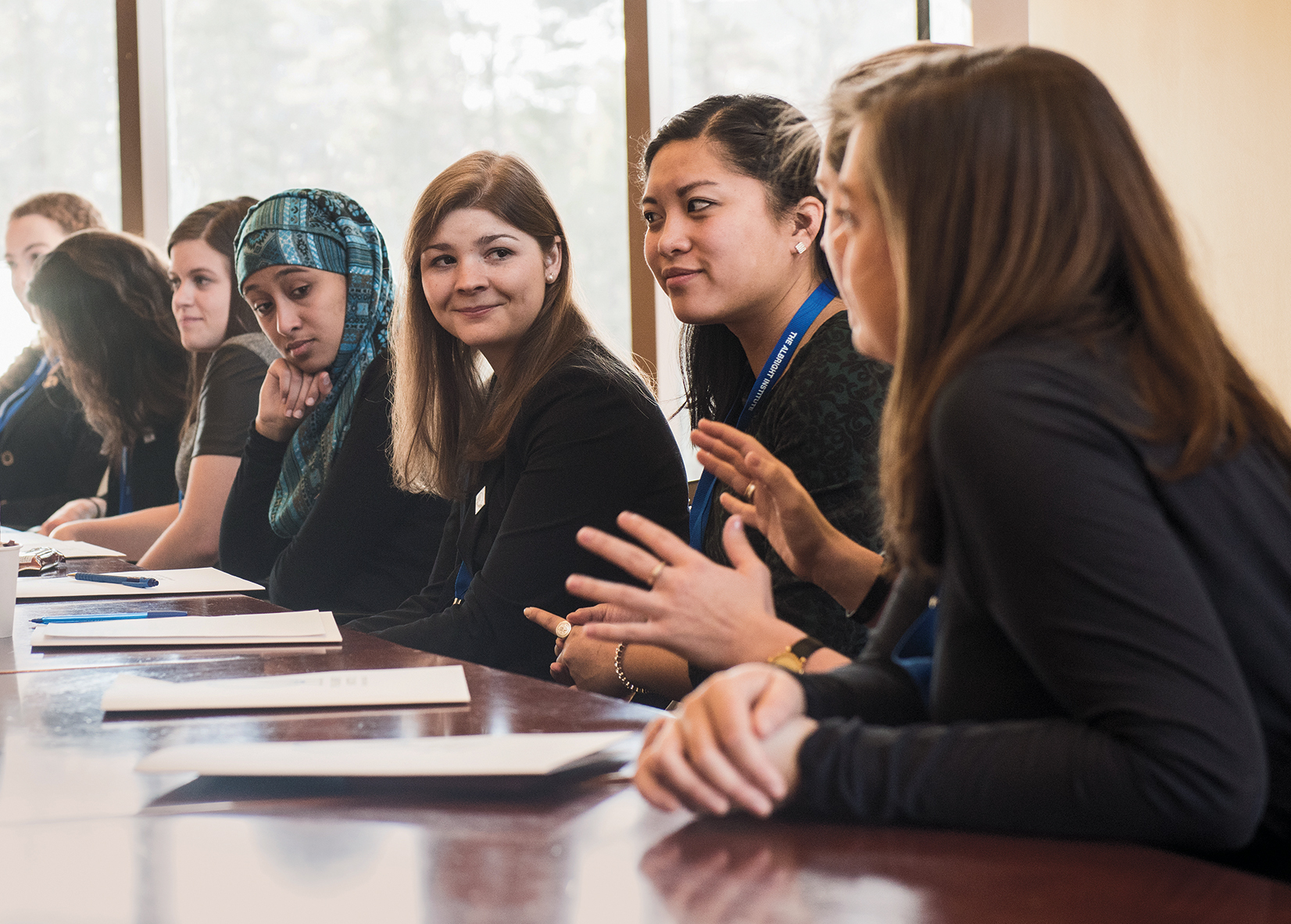
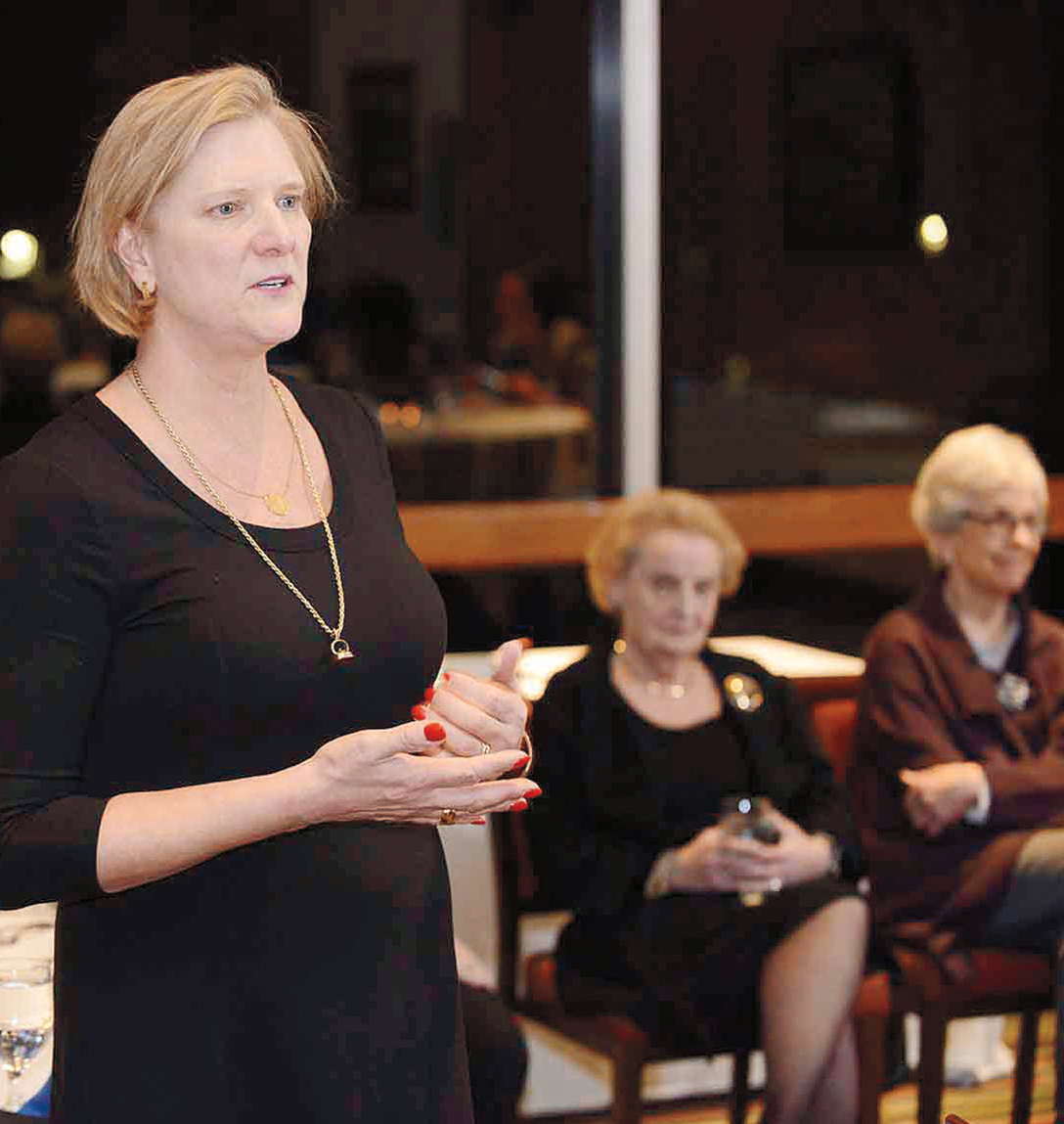
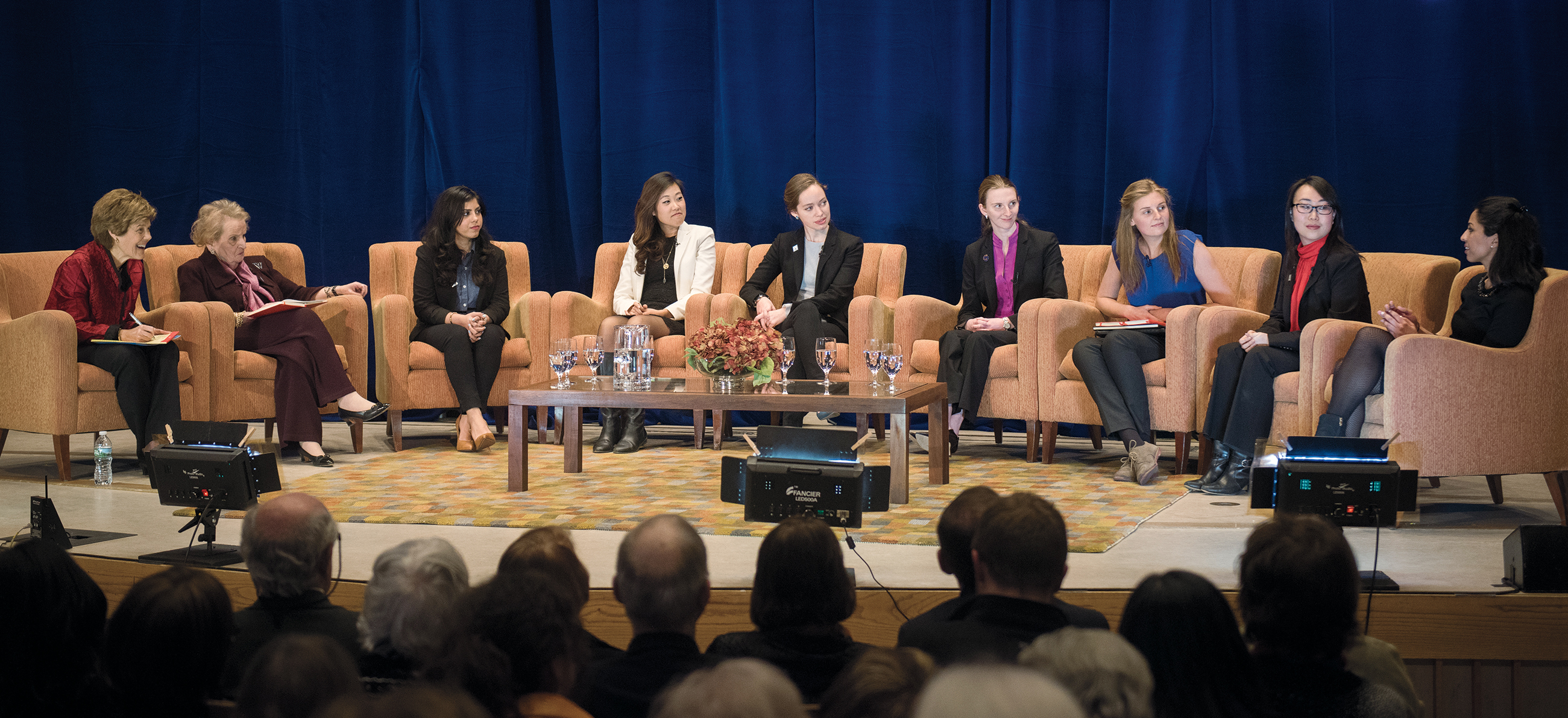
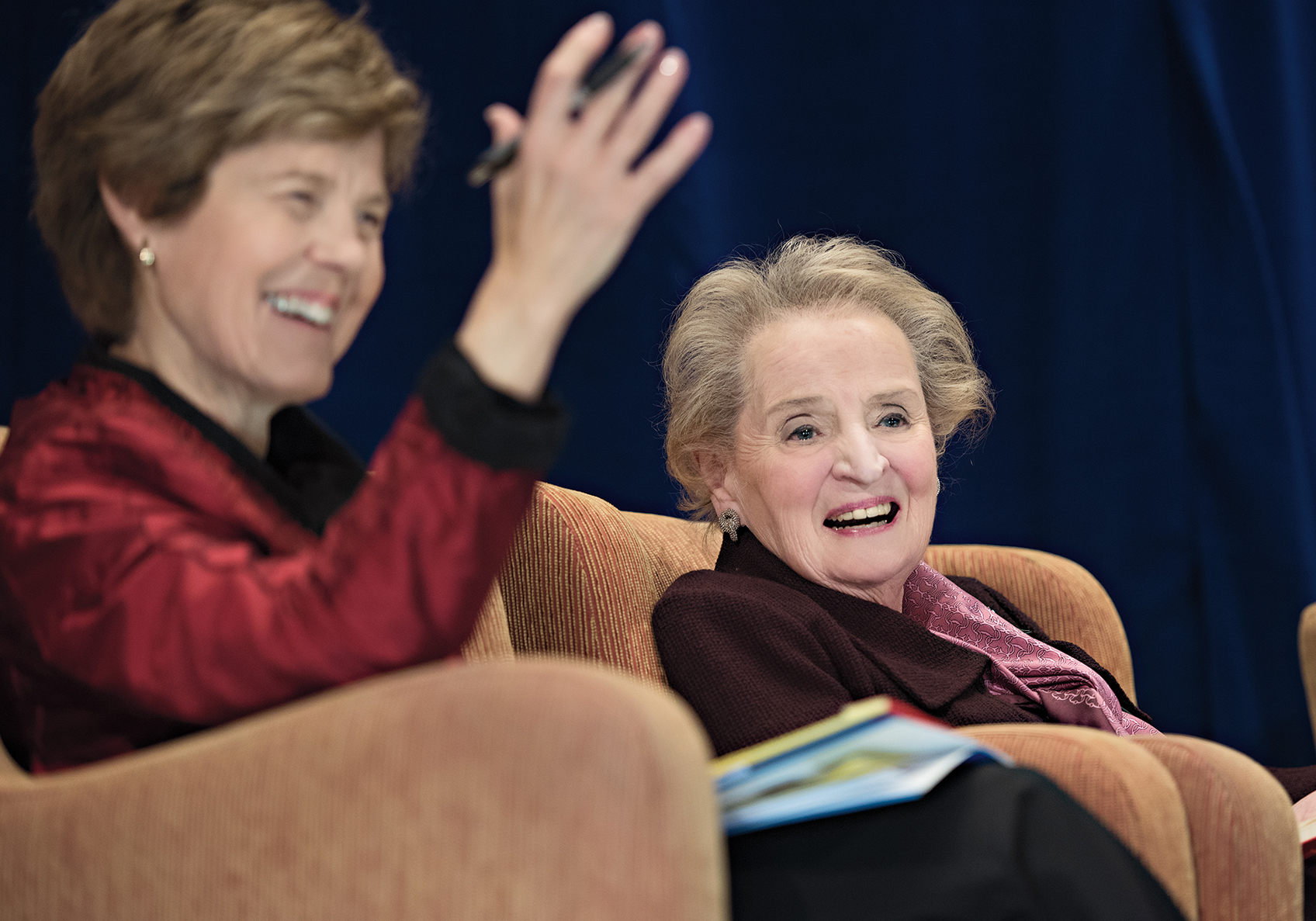







We ask that those who engage in Wellesley magazine's online community act with honesty, integrity, and respect. (Remember the honor code, alums?) We reserve the right to remove comments by impersonators or comments that are not civil and relevant to the subject at hand. By posting here, you are permitting Wellesley magazine to edit and republish your comment in all media. Please remember that all posts are public.